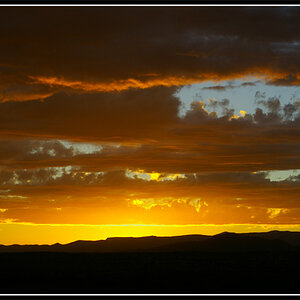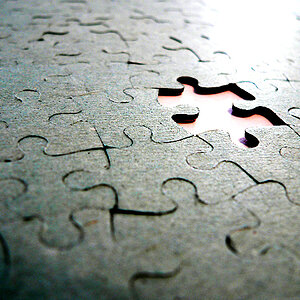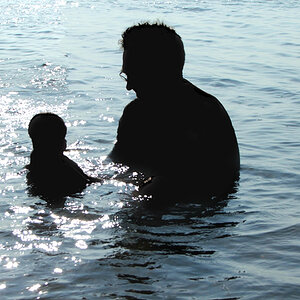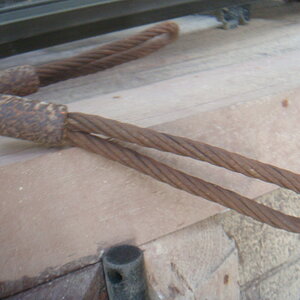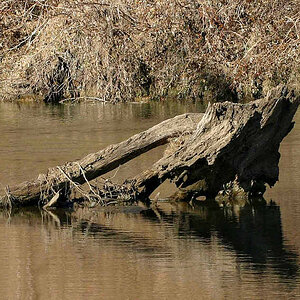Navigation
Install the app
How to install the app on iOS
Follow along with the video below to see how to install our site as a web app on your home screen.

Note: This feature currently requires accessing the site using the built-in Safari browser.
More options
You are using an out of date browser. It may not display this or other websites correctly.
You should upgrade or use an alternative browser.
You should upgrade or use an alternative browser.
Snapshots
- Thread starter abraxas
- Start date
Miaow
TPF Noob!
- Joined
- May 25, 2007
- Messages
- 885
- Reaction score
- 0
- Location
- South of Melbourne, Australia
- Website
- s7.invisionfree.com
- Can others edit my Photos
- Photos NOT OK to edit
Photography is the art of taking a photo so a snapshot is still photography to those that take it
To appeal to a larger audience though I think the pic does need to appeal to others senses etc (if that makes sense) or have a deep impact on the senses.
I think maybe it moves beyond the snapshot stage when you actually start looking at a scene and thinking how will others find this - how can I bring this feeling (of the scene) across to others.
the art or process of producing images of objects upon a photosensitive surface (as film in a camera) by the chemical action of light or other radiant energy
Dictionary definition
To appeal to a larger audience though I think the pic does need to appeal to others senses etc (if that makes sense) or have a deep impact on the senses.
I think maybe it moves beyond the snapshot stage when you actually start looking at a scene and thinking how will others find this - how can I bring this feeling (of the scene) across to others.
tineybabes
TPF Noob!
- Joined
- Apr 26, 2008
- Messages
- 12
- Reaction score
- 0
- Can others edit my Photos
- Photos OK to edit
I guess we all look at things differently, i think that snap shots are a little carelessly taken, and real photos take time and creativity to look at. I mean ok i have been developing my art side and now i will be out and look at something and visualise it as a photo, you need to take into account a lot of things like light etc, and also the capabilities of your camera and how to use it to its upmost abilities
Hertz van Rental
We're supposed to post photos?
"the art or process of producing images of objects upon a photosensitive surface (as film in a camera) by the chemical action of light or other radiant energy"
Not really a very good definition because it excludes digital methods and therefore implies that anyone who uses a digital camera is not practicing photography
"Snapshot" (like 'Photography' it would seem) is one of those words that everyone thinks they know the meaning of but actually don't - demonstrated by the fact that everyone's definition is slightly different.
It is really a 'fuzzy' word with no definite meaning because it has changed it's meaning a few times.
Snapshot is a very old shooting term - a shot taken without proper aim or preparation. To 'snap a shot off' with snap having the same meaning as in 'snap decision'. It may even go back as far as the bow.
Photography took it up early on with Herschel using it around 1860 to differentiate the newer, more instantaneous, photographic methods from the older and slower sort. They allowed photographers to 'snap' shots off in quick succession.
The term soon came to be used to differentiate between images taken using big plate cameras (particularly in the studio) and the smaller Kodak-type roll film cameras. And from there it has come to mean 'pictures taken with little thought' and 'pictures taken by amateurs'.
A little thought will show you that this is not a fair definition, though.
When used in shooting it implies that you see a fleeting opportunity, take it and trust to your skill - and a little luck - to pull it off.
If we are being fair to Photography then the same should apply. Seeing a fleeting opportunity and taking it, hoping that you skill will help you pull it off.
After all, this is what press and sports photographers do all the time. So technically their pictures are snapshots.
Henri Cartier-Bresson did exactly the same thing, seeing an opportunity and taking it. His work is the epitome of the snapshot, and it is in Museums.
No, the term 'snapshot' has become derogatory through laziness and without justification. It is used to dismiss images when the person using the term is too lazy or ignorant to differentiate between what is good and what is bad. You can have good or bad snapshots just as easily as good and bad wedding photographs, fashion photographs or advertising photographs. The equipment used and the time taken to make a picture in no way indicates the relative abilities of the photographer.
So instead of saying 'how can I move beyond the snapshot?' it would be better to ask 'how can I improve my photography?'.
Improvement comes with thinking more about what you are taking pictures of and why, not with getting a more expensive camera and taking longer to 'compose' each shot.
Not really a very good definition because it excludes digital methods and therefore implies that anyone who uses a digital camera is not practicing photography
"Snapshot" (like 'Photography' it would seem) is one of those words that everyone thinks they know the meaning of but actually don't - demonstrated by the fact that everyone's definition is slightly different.
It is really a 'fuzzy' word with no definite meaning because it has changed it's meaning a few times.
Snapshot is a very old shooting term - a shot taken without proper aim or preparation. To 'snap a shot off' with snap having the same meaning as in 'snap decision'. It may even go back as far as the bow.
Photography took it up early on with Herschel using it around 1860 to differentiate the newer, more instantaneous, photographic methods from the older and slower sort. They allowed photographers to 'snap' shots off in quick succession.
The term soon came to be used to differentiate between images taken using big plate cameras (particularly in the studio) and the smaller Kodak-type roll film cameras. And from there it has come to mean 'pictures taken with little thought' and 'pictures taken by amateurs'.
A little thought will show you that this is not a fair definition, though.
When used in shooting it implies that you see a fleeting opportunity, take it and trust to your skill - and a little luck - to pull it off.
If we are being fair to Photography then the same should apply. Seeing a fleeting opportunity and taking it, hoping that you skill will help you pull it off.
After all, this is what press and sports photographers do all the time. So technically their pictures are snapshots.
Henri Cartier-Bresson did exactly the same thing, seeing an opportunity and taking it. His work is the epitome of the snapshot, and it is in Museums.
No, the term 'snapshot' has become derogatory through laziness and without justification. It is used to dismiss images when the person using the term is too lazy or ignorant to differentiate between what is good and what is bad. You can have good or bad snapshots just as easily as good and bad wedding photographs, fashion photographs or advertising photographs. The equipment used and the time taken to make a picture in no way indicates the relative abilities of the photographer.
So instead of saying 'how can I move beyond the snapshot?' it would be better to ask 'how can I improve my photography?'.
Improvement comes with thinking more about what you are taking pictures of and why, not with getting a more expensive camera and taking longer to 'compose' each shot.
Miaow
TPF Noob!
- Joined
- May 25, 2007
- Messages
- 885
- Reaction score
- 0
- Location
- South of Melbourne, Australia
- Website
- s7.invisionfree.com
- Can others edit my Photos
- Photos NOT OK to edit
"the art or process of producing images of objects upon a photosensitive surface (as film in a camera) by the chemical action of light or other radiant energy"
Not really a very good definition because it excludes digital methods and therefore implies that anyone who uses a digital camera is not practicing photography
I'd say that a DSLR sensor is a photosensitive surface? But true that quote I did seems to be more 'film' related than DSLR which i didnt intend.
Improvement comes with thinking more about what you are taking pictures of and why, not with getting a more expensive camera and taking longer to 'compose' each shot.
I agree on the above
- Joined
- Feb 1, 2004
- Messages
- 34,813
- Reaction score
- 822
- Location
- Lower Saxony, Germany
- Can others edit my Photos
- Photos NOT OK to edit
Hertz, I really like your explanation!
Yes, indeed, it explains a lot.
And actually, today, the way modern cameras work, practically every photo that gets taken is a "snapshot" in the end, since taking it is over and done with in a fraction of a second, no more. (Mostly, that is).
And also I was thinking about the famous street photographers, whose works can be found in museums, yet the "production" of those works cannot, just can not, have been more than "aim, point, shoot". Else the situation would have long gone by at the time they were ready. So yes, also I was thinking: isn't their work "snapshot"-work, too, if it comes to defining the word?
On the other hand, I get the feeling that, once you dedicate yourself more and more to photography as such, even your "fast photos" (or "snapshots", if you want to call them that) can look better than the average pic of your neighbouring Dick, Tom or Harry...
But that, too, goes with your saying "Better aim at improving your 'photography'..." - so in the end I can only come to the conclusion that we agree on all you wrote about the definition (and change of definition) of the word "snapshot" .
.
Yes, indeed, it explains a lot.
And actually, today, the way modern cameras work, practically every photo that gets taken is a "snapshot" in the end, since taking it is over and done with in a fraction of a second, no more. (Mostly, that is).
And also I was thinking about the famous street photographers, whose works can be found in museums, yet the "production" of those works cannot, just can not, have been more than "aim, point, shoot". Else the situation would have long gone by at the time they were ready. So yes, also I was thinking: isn't their work "snapshot"-work, too, if it comes to defining the word?
On the other hand, I get the feeling that, once you dedicate yourself more and more to photography as such, even your "fast photos" (or "snapshots", if you want to call them that) can look better than the average pic of your neighbouring Dick, Tom or Harry...
But that, too, goes with your saying "Better aim at improving your 'photography'..." - so in the end I can only come to the conclusion that we agree on all you wrote about the definition (and change of definition) of the word "snapshot"
Hertz van Rental
We're supposed to post photos?
I'd say that a DSLR sensor is a photosensitive surface? But true that quote I did seems to be more 'film' related than DSLR which i didnt intend.
Yes, the sensor in a dSLR is a photosensitive surface but the processes by which it responds to light is physical, not chemical. And the same can be said about film photography - light causes a physical change to produce the latent image (see the Gurney-Mott theory of latent image formation).
In film the image is then processed chemically to 'amplify' and make permanent (or reasonably permanent) the latent image. In the dSLR this is done electronically.
But I knew what you were trying to say. I was just highlighting the pitfalls of assuming that the Dictionary definition of a word defines the act or process itself
Similar threads
- Replies
- 6
- Views
- 482
- Replies
- 14
- Views
- 513
- Replies
- 0
- Views
- 2K

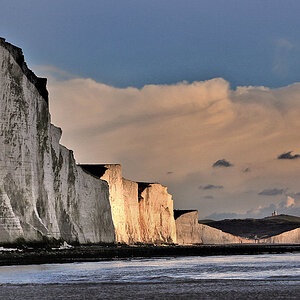
![[No title]](/data/xfmg/thumbnail/39/39509-3c2c5856429b4b8ff3cf44cd3b2afa8c.jpg?1619739064)
![[No title]](/data/xfmg/thumbnail/36/36401-dfb1077e5917eb47c5acf9c208e7be2a.jpg?1619737552)
![[No title]](/data/xfmg/thumbnail/31/31979-ea92aca54ae865842d998c9cec534991.jpg?1619735137)
![[No title]](/data/xfmg/thumbnail/31/31977-2b717e032201241cbeae8226af23eba4.jpg?1619735136)
![[No title]](/data/xfmg/thumbnail/31/31978-02cde49248ebdf1b82fba5c899e08378.jpg?1619735136)
![[No title]](/data/xfmg/thumbnail/31/31980-e5048a424621c7b3cd0d306d63c09d67.jpg?1619735137)
